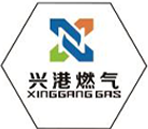
Dec . 04, 2024 16:34
Back to list
gas filtration
Gas Filtration An Essential Process for Environmental Protection and Industrial Efficiency
Gas filtration is a vital technology that plays an important role in various sectors, including environmental protection, industrial operations, and indoor air quality management. As concerns about air pollution and respiratory health increase, the need for efficient gas filtration systems becomes ever more critical. In this article, we will explore the principles of gas filtration, its applications, and the benefits it offers.
At its core, gas filtration involves the separation of particles and impurities from gaseous streams. The fundamental principle relies on the physical or chemical interactions between the filter media and the contaminants. The process can effectively remove particulate matter, gases, and aerosols, thus purifying the air or gas to meet specific standards. Various methods are employed in gas filtration, including mechanical filtration, adsorption, and electrostatic precipitation.
Mechanical filtration, one of the most common methods, utilizes a porous filter material to capture larger particles present in the gas stream. As the gas passes through the filter, particles are retained while the cleaned gas flows through. This method is often used in HVAC systems to improve indoor air quality and protect sensitive equipment from particulate damage.
In contrast, adsorption methods involve the adherence of gas molecules or vapors to solid surfaces. This process utilizes activated carbon or other absorbent materials to capture volatile organic compounds (VOCs) and harmful gases. Activated carbon filters are widely used in both industrial and residential applications to eliminate odors and harmful substances from the air. This method is particularly effective in places where chemical processes produce noxious byproducts.
gas filtration

Another innovative technique utilized in gas filtration is electrostatic precipitation
. This method charges particles in the gas stream, causing them to be attracted to oppositely charged collection plates. Electrostatic precipitators are commonly employed in industries such as power generation and cement manufacturing to remove particulate matter and reduce emissions.The applications of gas filtration are diverse. In industries, gas filtration systems are essential for maintaining air quality, ensuring compliance with environmental regulations, and protecting worker health. For instance, in chemical manufacturing, gas filtration helps minimize the release of harmful substances, thus safeguarding both workers and the surrounding environment.
Moreover, gas filtration technologies have become increasingly important in combating climate change. By lowering emissions of greenhouse gases and other pollutants, effective filtration systems contribute to cleaner air and a healthier planet. Many facilities are now incorporating advanced gas filtration systems to reduce their carbon footprint and enhance their sustainability practices.
In the context of indoor air quality, gas filtration is crucial for homes and commercial spaces. With urbanization and industrialization leading to increased air pollutants, maintaining a healthy indoor environment is necessary. High-efficiency particulate air (HEPA) filters and other specialized filtration systems can significantly reduce allergens, smoke, and chemical vapors, promoting better health and comfort for occupants.
In conclusion, gas filtration is a significant technology that addresses various environmental and health challenges. With its numerous applications across different fields, it provides an effective means of improving air quality, protecting industrial equipment, and promoting public health. As technology advances, the future of gas filtration looks promising, with ongoing innovations aimed at enhancing efficiency and reducing costs. By investing in gas filtration systems, we can recognize their essential role in creating a cleaner, healthier world for current and future generations.
Next:
Latest news
-
Safety Valve Spring-Loaded Design Overpressure ProtectionNewsJul.25,2025
-
Precision Voltage Regulator AC5 Accuracy Grade PerformanceNewsJul.25,2025
-
Natural Gas Pressure Regulating Skid Industrial Pipeline ApplicationsNewsJul.25,2025
-
Natural Gas Filter Stainless Steel Mesh Element DesignNewsJul.25,2025
-
Gas Pressure Regulator Valve Direct-Acting Spring-Loaded DesignNewsJul.25,2025
-
Decompression Equipment Multi-Stage Heat Exchange System DesignNewsJul.25,2025

